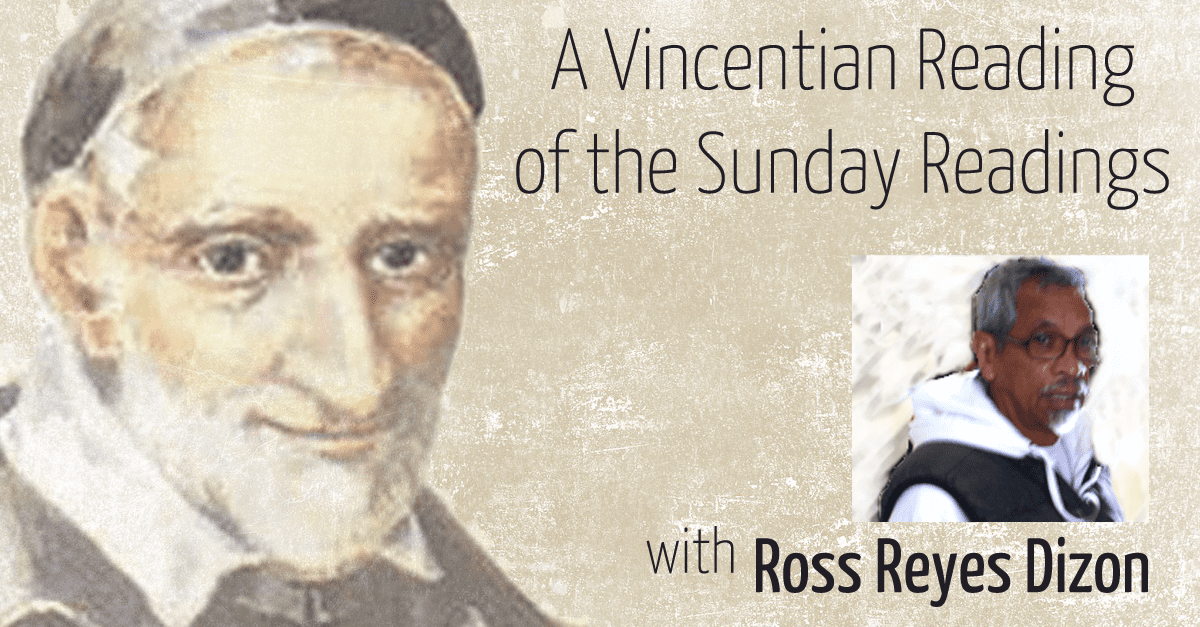Jesus is “God-with-us.” And that is why disciples should not cut off God and their neighbor from their lives.
The man whose life is one of luxury and show is very rich: stylish clothes, lavish banquets. He is cut off, for sure, from the beggar; the two are worlds apart.
For sores cover the one who lies at the rich man’s door. And the dogs seem to delight in them. But maybe they clean his sores, which he may find soothing. The dogs wish, too, that they ease their hunger with the scraps that fall from the banquet table. Misery does love company.
But a thing about the men that is cut and dried is that one has the name Lazarus, which means, God helps. The other is a “nobody”
The point is that wealth gives no one a name. To have wealth does not mean the wealthy get their fill, or feel secure, solid, worthy of respect. Though rich, Herod finds troubling a claim about the birth of the king of the Jews. He shows he is not the hero his name and ego make him out to be.
But Peter, who admits he has no silver and gold, wins the people’s respect. They say good things about him and the other poor disciples.
He also makes clear, though, that what is awesome and draws people is due to God. That is to say, it is all up to God. And that is why for us to try to cut God off spells our own ruin.
Wealth can cut us off from God and our neighbor
In God we live, move and have our being. We are solid and of worth since he shares with us his solidity, his glory.
And the rich man is a nobody, for he is self-sufficient, in need of no one. Not of cooks, waiters or of busboys to clear the table or wash dishes. He just about turns down all help. So, he gets no help from the one who helps Lazarus.
God, then, leaves the lover of luxury to his obsessions and whims. He does here as he wishes and cuts off from his life God and the neighbor. So, it should not come as a surprise that there he is cut off, too, from God and the neighbor. One reaps what one sows.
The parable does not say that the rich man who is in torment is one of those who are wicked. His sin is not a matter of word or deed but of omission.
In other words, he suffers torment in flames for lack of compassion. He proves true the saying, “You cannot serve God and money.” Wealth is wicked insofar as it leads the wealthy to cut off God and the neighbor from their lives. The woe from Amos says, too, that this is true.
Lazarus, in turn, is not a model of resignation to a wretched life or of hope of a reward in heaven. Rather, he is a protest against the rich who show no concern. They harden their hearts; they do not heed God, Moses or the prophets.
Lord Jesus Christ, grant that we see you, with the love from which nothing can cut us off, in today’s Lazarus, and do what you teach us. Crucified, you urge us to be merciful and thus be truly human (SV.EN XII:222). From the cross, you proclaim, too, that the Christian cannot stand by in silence in the face of injustice. Rather, he must be willing to suffer for the sake of justice, devotion, faith. Even to the giving up of the body and the shedding of blood.
25 September 2022
26th Sunday in O.T. (C)
Am 6, 1a. 4-7; 1 Tim 6, 11-16; Lk 16, 19-31






0 Comments